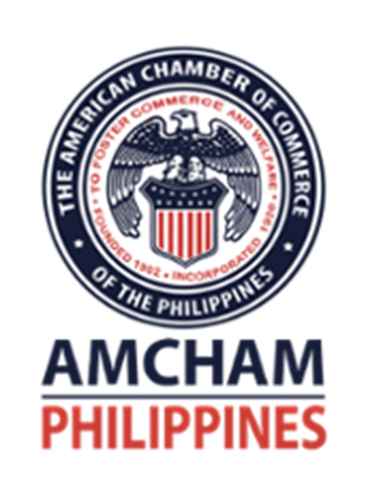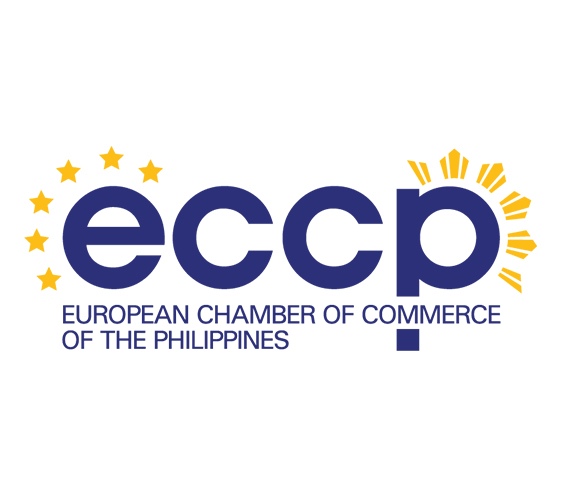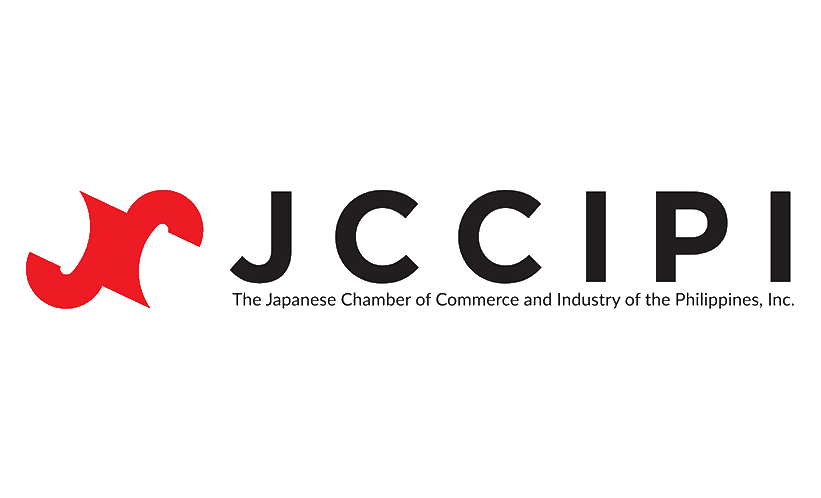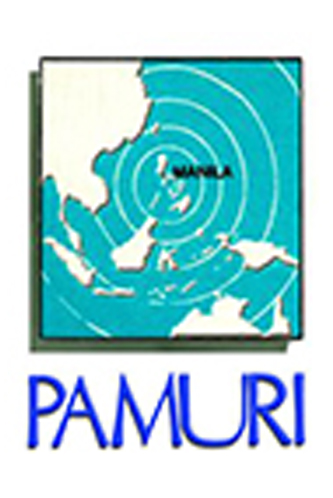April 30, 2012
Hon. Ralph G. Recto
Chairman
Committee on Ways and Means
Philippine Senate
Rm. 508 5/F GSIS Bldg.,
Roxas Blvd., Pasay City
Dear Chairman Recto:
We express our appreciation to the Chairman for prioritizing legislation on the rationalization of fiscal incentives in the third hearing on this important policy issue. We are optimistic that this measure has a very strong chance of being enacted this Congress as the Executive and Legislative branches recognize that this is crucial to the Philippine quest for competitiveness and economic growth.
All of the signatories have long supported the rationalization of fiscal incentives in the Philippines, the need for which is widely recognized. As the IMF recently commented, “….despite this recognition, there has been very little reform of incentives, with a tendency to expand rather than rationalize them. “
We reiterate our support for House Bill 4935 with the inclusion of the proposed amendments we submitted and discussed in the previous hearing of the Committee on this legislation on October 4, 2011. (See attached)
We would like to thank you for giving us the opportunity to comment and provide our suggested revisions on the Department of Finance (DOF) version of the Rationalization of Fiscal Incentives Bill.
Our specific comments follow:
A. General Comments
1. Absence of Income Tax Holiday
This is probably the worst time to remove the income tax holiday, which as you know is an important factor for many investors when they are “shopping” for locators for new and/or expanded operations.
Today, there is an excellent opportunity for the Philippines to attract multinational manufacturing companies relocating from Asian countries where production costs are escalating. Appreciation of the Japanese yen is making it very difficult for many firms to continue export production there. Already, in the last few months, we have seen two Japanese printer firms, Brother and Cannon, break ground on new factories in Batangas that will employ many thousands of Filipinos. Wages in China rose 20% last year and the renminbi is steadily appreciating, forcing many low-margin manufacturers in China to relocate.
The Philippines is competing with Vietnam and Indonesia. Indonesia approved almost $6B FDI in the first quarter of 2012, on top of $18B last year. Indonesia has become Southeast Asia’s new favored destination for FDI. Meanwhile, the Philippines is beginning to appear on investors’ radar screens. Investments in electronics reached a record level $2.4B in 2011, with a third of this amount coming in the fourth quarter. Despite the drop in exports of electronics in 2011, exports this year are on the rise again. Global demand for electronic products is steadily rising. We are optimistic that these developments will continue.
One of the main recommendations of the 2010 IMF Road Map For a Pro-Growth and Equitable Tax System is to rationalize the existing incentives, limit tax holidays to few specific investments and sectors, and to a duration of no more than five years.
Appendix 2 of the IMF Road Map shows that the Philippines with 30% Corporate Income Tax (CIT) is higher in the region than China, Indonesia, Malaysia, and Vietnam with 25%, and Cambodia and Singapore with 20% and 17%, respectively. All of these countries offer ITH of up to 3 years, Indonesia, Vietnam and Thailand up to 8 years, Malaysia up to 10 years and Singapore up to 15 years. Please note, Mr. Chairman, that in Indonesia and Vietnam, our strong competitors for manufacturing FDI, the period of ITH is up to 8 years whereas the maximum in the House version is 8 years for Domestic Strategic Enterprises only.
We believe that the absence of any income tax holiday in this draft bill will make the Philippines even less competitive than our neighboring countries who continue to offer income tax holiday despite the fact that they already have better infrastructure than the Philippines. The DOF proposal to end ITH would handicap Philippine competitive ability to attract manufacturing relocating from China and elsewhere.
Many business surveys and studies show that infrastructure is one of the primary concerns of foreign investors in choosing an investment location. It is undeniable that the Philippines is lagging behind in infrastructure compared to other countries and will continue to do so since we spend less than five percent (5%) of our GDP annually on infrastructure, while our neighbors continue to spend between eight percent (8%) to fourteen percent (14%) of their GDP.
If the Philippines removes the ITH incentive that other countries with already better infrastructure still offer, how is the Philippines going to compete?
We believe that this is not the time to experiment, now that we have seen the enormous growth and momentum particularly of the business process outsourcing (BPO) industry.
The government continues to refer to revenue loss because of ITH. Has the Government quantified the revenue gain in terms of employment, generating withholding tax on compensation, final withholding tax on dividends remitted by ecozone and BOI companies, VAT and collections and excise taxes and the higher domestic consumption generated by people employed in these enterprises who otherwise would have just been part of the unemployment statistics? Has the government quantified the expanded withholding tax remittances of these ecozone enterprises from their local purchases of goods and services? Has the government quantified the value of transfer of technology and managerial expertise that these ecozone and BOI companies brought to the country?
We also believe that the President should continue to have the authority to close a deal for major projects using the ITH just as the leaders of our competitors have that authority.
2. Absence of Incentives for Strategic Projects
Unlike the Substituted FRIB of the House of Representatives, it appears that this bill will not grant any incentives to encourage investment in Strategic Projects in the country.
We note that there may be foreign investments that would opt to locate in the Philippines that are not necessarily export oriented and yet will bring in large capital investment, generate substantial employment, and will employ pioneer and advanced technology.
This bill should at least define what can qualify as a Strategic Project and provide incentives to it so as not to close the opportunity of attracting these types of investments such as R&D facilities of multinational companies.
B. Specific Comments on the Provisions of the Bill
1. Section 5 (c), Powers and Duties of the BOI.
We are suggesting that another function be added as paragraph “8” to read as follows:
“8. Seek to reduce barriers to foreign investment in the Philippines by reviewing legal and administrative obstacles to such investment, contained in the Foreign Investment Negative List and elsewhere. The BOI should report at least once a year to the Congress its assessment of the importance of the restrictions in the Foreign Investment Negative List accompanied by recommendations on which should be retained and which should be modified and/or removed from the list in order to encourage more foreign investment in the national economy.”
The BOI is the primary government agency for Investment Promotion and Industrial Development. In the global economy, barriers have steadily been removed to facilitate trans-border investment. With the exception of opening the gambling sector to up to 100 percent foreign equity, no significant liberalization of the foreign investment regime has been made since the Retail Trade Act in 2000. Adding the above function to the Investment and Incentives Code of the Philippines will express the desire of the Congress to encourage more foreign investment and will establish the BOI as the leading government agency to study and recommend investment reform.
2. Section 7 (a), Fiscal Incentives to Registered Enterprises
In line 15 page 9, AIR was mentioned. We believe that AIR should be defined. If this was the same AIR that the House of Representatives rejected, then, it should be deleted in this bill.
3. Section 7 (a), Fiscal Incentives to Registered Enterprises
On line 19, page 9, under Option 1: Gross Income Earned (GIE), we submit that VAT should not be imposed on land owned by private developers of Ecozone. Since almost all locators in PEZA zones are export enterprises, why should VAT be imposed on their purchases or lease of land?
4. Section 7 (a), Fiscal Incentives to Registered Enterprises
Line 21, page 10, under Option 2: Reduced Income Tax (RIT), paragraph (iii) should include training expenses for “potential” employees and training programs in collaboration with schools accredited by DECS or CHED.
Companies are increasingly working directly with colleges, universities, and other schools to train students in skills to enable them to obtain better quality jobs in industry. The electronics and IT-enabled call center and mining industries are especially active in this regard, spending on training for potential employees. Given the funding limitations faced by many schools, this is an excellent way to supplement their limited funding and encourages closer government and industry collaboration to prepare the youth with skills necessary for higher-value future employment.
We recommend that an additional paragraph be added, as follows:
“The same benefit of double deduction shall likewise extend to expenses paid or incurred by the registered export enterprise in its training projects in collaboration with schools and universities accredited by the Department of Education (DepEd) or Commission on Higher Education (CHED). The training expenses incurred shall be deductible from taxable income on the taxable year the said training expenses were incurred.”
5. Section 7 (a), Fiscal Incentives to Registered Enterprises
In line 16 page 11, under Option 2: Reduced Income Tax (RIT), we submit that the proviso of paragraph (iv) should be deleted because the tax being proposed, that is, 3% of gross revenue, is confiscatory. A tax of 3% on gross revenue is even higher than our existing Minimum Corporate Income Tax (MCIT) of 2% on gross income.
This could mean that a company whichis suffering from a loss because of high direct production cost like raw materials will still be made to pay 3% on their gross revenue. This is highly unjust.
6. Section 7 (b), Fiscal Incentives to Registered Enterprises
In page 12 line 7 and 8, we recommend the deletion of the last sentence which reads: “They are not manufactured domestically in sufficient quantity, of comparable quality and at reasonable prices;”
Investors should be free to select equipment regardless of origin and price and left to their discretion, in accordance with best international practice.
7. Section 7 (b), Fiscal Incentives to Registered Enterprises
In page 12 line 21, regarding exemption from duties and taxes of PEZA-approved disposition of machinery, equipment and spare parts, we recommend that a new paragraph (V) be added to read, as follows:
“In any case, any transfer or disposition of capital equipment which partake of contributions or gifts in the exercise of its corporate social responsibility through activities such as, but not limited to, charitable, scientific, youth and sports development, cultural or educational purposes, services to veterans and senior citizens, social welfare, health, environmental sustainability and disaster relief and assistance shall be exempt from VAT, duties and taxes and donors tax.”
We believe that public schools and state colleges and universities in particular will benefit if this paragraph is added.
8. Section 7 (b), Fiscal Incentives to Registered Enterprises
In page 14 line 4 to 5, we recommend that the phrase “provided that the capital equipment is being used by the registered export enterprise pursuant to its registered activity” be deleted. We note that there are instances when an export enterprise has to re-export capital equipment immediately due to incorrect specifications, etc. In those instances, the registered enterprise should still be allowed to refund the VAT on importation.
We also note that there are instances when capital equipment is being used for both registered and unregistered activity. Does that mean that the registered export enterprise cannot refund the VAT paid on said imported equipment simply because the capital equipment is not being used solely for the registered activity?
9. Section 7 (b), Fiscal Incentives to Registered Enterprises
In page 14, the whole paragraph from line 6 to line 11 should be deleted as it is vague and confusing. he paragraph also prevents the claim for refund of VAT on raw materials that became spoiled.
10. Section 7 (b), Fiscal Incentives to Registered Enterprises
In page 14, we recommend that the sentence in line 20 to 21 stating that “However, the VAT refund shall only be granted upon obtaining favorable endorsement from the Bureau of Internal Revenue (BIR)” be deleted.
Obtaining the endorsement of the BIR will add another bureaucratic hurdle to the already cumbersome refund process.
11. Section 7 (b) (2), Located outside Economic and/or Freeport Zone. VAT and Duty Refund.
In page 14 line 22 to 25, we recommend that this paragraph be revised to read, as follows:
“A registered export enterprise shall file a claim for VAT refund within one (1) year from the date such input taxes were paid. Otherwise, the taxpayer has the option to claim such unutilized input taxes as an expense deductible from its gross income, whether under 5% GIE or 15% reduced CIT.”
The one (1) year period for filing of claims for refund should not be reckoned from the date of export sale because this is a source of confusion. There are input taxes which cannot directly be attributable to export sales such as ren. Also, there are many cases where huge input taxes are incurred in connection with construction of manufacturing plants. This construction may take two years to complete before actual operation can commence. Why do these registered export enterprises have to wait for their actual exportation before they can refund their input VAT?
12. Section 7 (b) (2), Located outside Economic and/or Freeport Zone. VAT and Duty Refund.
In page 14 line 1 to 4, we recommend that claims for refund be deemed approved if they are not acted upon within 30 days from submission of complete documents.
13. Section 7 (b) (3), Tax And Duty Free Importation of Source Documents
In page 15 line 10 to 11, we recommend that the limitation of 10 years to the tax and duty free importation of source documents for ICT-registered enterprises be deleted. We should not put a limitation on the exemption from VAT on importation since the revenues of ICT-registered enterprise are always coming from outbound services. It will violate the “destination principle” to which our VAT system adheres if VAT is imposed on their imported source documents.
14. Section 7 (b) (4) (i), VAT Incentive on Local Sales to Registered Export Enterprises
In page 15 line 13 to 16 should be revised to read, as follows:
“The sale by any VAT-registered enterprise from customs territory of goods and/or services to a registered export enterprise shall be subject to zero percent (0%) VAT.”
The bill provides a defines a “Registered Enterprise” in Section 3 (l) as an export enterprise located within the ecozones or freeport zones. Hence, the current provision wouldl limit the zero-rating only to sales by VAT-registered enterprises located within the ecozones or freeport zones. In other words, under the current wording of this provision, the sales of goods and services by non-registered domestic enterprises to Registered Export Enterprises will become subject to VAT.
15. Section 15, Percentage of Income Allowable from Sources within the Customs Territory or Sources from Local Sales
In page 16, line 23 to 24, we recommend that the last sentence stating that “…….in other words, it foregoes its privilege of enjoying all tax incentives for the pertinent period” be deleted because it so sweeping. It may imply that the VAT on imported raw materials (which were already exported as finished products) will have to be paid also simply because the threshold of 70% was not met.
Mr. Chairman, thank you for considering our views.
Regards,
RHICKE JENNINGS IAN PORTER
President President
American Chamber of Commerce Australian-New Zealand Chamber
of the Philippines, Inc. of Commerce of the Philippines, Inc.
JULIAN PAYNE HUBERT D’ABOVILLE
President President
Canadian Chamber of Commerce European Chamber of Commerce
of the Philippines, Inc. of the Philippines, Inc.
TAKASHI ISHIGAMI EUN GAP CHANG
President President
Japanese Chamber of Commerce Korean Chamber of Commerce
& Industry of the Philippines, Inc. of the Philippines, Inc.
SHAMEEM QURASHI
President
Philippine Association of Multinational Companies
Regional Headquarters, Inc.
Attachments:
HB 4935 Fiscal Incentives
DOF-FIversion_1-27-12 numbered
JFC Statement on Fiscal Incentives Oct 2011



























